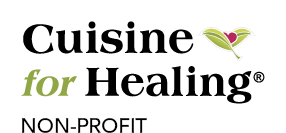The controversial topic of grains-do any of them have redeeming qualities? Some say no but I say every dog has his day. Lets learn about barley!
As one of the most ancient cultivated grains in the world, barley originated in Ethiopia and Southeast Asia, where it has been cultivated since 8000 B.C.E. It is thought that post-Ice Age climatic changes, plus barley’s development of a hardened rachis, which prevented early grain scattering, allowed for better barley cultivation.
As one of the first cereals cultivated in the Middle East, barley was used by ancient civilizations as a food for humans and animals, as well as to make alcohol. Actually, the first known recipe for barley wine dates back to 2800 B.C.E. in Babylonia. Barley water has also been used for various medicinal purposes since ancient times.
The ancient Greeks relied on barley to make bread, and athletes attributed much of their strength and physical growth to their barley-containing diets. Roman athletes also honored barley for the strength it gave them. The gladiators were known as hordearii, meaning “eaters of barley”. Since the heads of barley are heavy and contain numerous seeds, barley was also honored in ancient China as a symbol of male virility.
Today, the largest commercial producers of barley are Canada, the United States, the Russian Federation, Germany, France, and Spain.
If you are having a difficult time suffering from asthma, arthritis, impotence, skin problems, anemia, obesity, constipation, diabetes, hypertension, kidney problems or heart disease, perhaps it’s time for you to learn about the health benefits of barley. Recent research says that consuming whole grain barley regulates blood sugar to a great extent. The health benefits of barley are mostly attributable to the eight essential amino acids which it contains, meaning that it represents a complete protein in our diet.
There are so many rampant ailments in recent years, which proves even more that our regular diets lack important nutrients. One of the most important nutrients that we often tend to neglect is fiber. Barley is an excellent source of both soluble and insoluble fiber, which assures you good overall health over the long term.
Keeps Colon and Intestine Healthy: Barley, being an excellent source of fiber, keeps your body toxin-free. Its grass, which is rich in dietary fiber, acts as a fuel source to the friendly bacteria of our large intestine. These bacteria help in fermenting the fiber content of the barley, thereby forming butyric acid, which is the primary fuel for intestinal cells. It is greatly effective in maintaining a healthy colon. By keeping the intestine in proper health, barley helps you to decrease the movement time of feces and keeps your stomach clean. It greatly reduces the chances of colon cancer and hemorrhoids as well.
Prevents Gallstones: Barley effectively helps women avoid developing gallstones. Since it is rich in insoluble fiber, it actually helps you to reduce bile acid secretion, thereby increasing insulin sensitivity and lowering the levels of triglycerides. Reportedly, in an article of the American Journal of Gastroenterology, women have a 17% lower risk of having gallstones as compared to others not consuming a fibrous diet.
Prevents Osteoporosis: The phosphorus and copper content in barley grass guarantees overall good health of bones. The phosphorous content in barley effectively cures bone and tooth ailments. If you have osteoporosis, it can be your natural remedy. Barley grass juice is known to have 11x greater calcium content than milk. Calcium, as we know, is one of the key components in protecting bone health. The manganese content in barley works in association with B-complex vitamins, thereby keeping the overall health intact. We need manganese for normal bone production, as well as in cases of iron deficiency anemia.
Supports Immune System: The vitamin C content in barley is almost twice than that of oranges. This vitamin particularly strengthens your immune system and reduces the chances of cold and flu. Iron improves the blood volume and prevents anemia and fatigue. It aids in proper kidney functioning and the development of body cells. Furthermore, it contains copper, which forms hemoglobin and red blood cells.
Preserves Skin Elasticity: Barley is a good source of Selenium, which helps you to preserve skin elasticity, thereby protecting it against free radical damage and loosening. Moreover, it also improves our heart, pancreas, and immune system functioning. A deficiency of selenium can lead to cancers of the skin, colon, prostate, liver, stomach, and breast.
Controls Blood Cholesterol Levels: Barley’s insoluble fiber yields propionic acid that helps keep the blood cholesterol levels low. It, being an excellent source of both soluble and insoluble fibers, is also specifically recommended by doctors for its naturally low-fat content and zero cholesterol properties.
Manages Diabetes: Barley works effectively on Type diabetes. However, we can prevent this type of diabetes by losing weight, getting involved in vigorous physical activity and including abundant whole grains in our diet. Therefore, high fiber foods like barley should be included in the daily diet of diabetic patients. Its grain has all the essential vitamins and minerals, particularly beta-glucan soluble fiber, that slows down glucose absorption. The December 2006 edition of Nutrition Research has proved that insulin-resistant men who consumed barley beta-glucan soluble fiber had significantly reduced glucose and insulin levels as compared to others test subjects.
Prevents Heart Disease & Cancer: Barley contains certain types of phytonutrients known as plant lignans, which are transformed by friendly flora in our intestines into mammalian lignans. One of these new lignans is called enterolactone, which helps us to prevent breast and other hormonal cancers as well as coronary or heart disease.
Protects Against Atherosclerosis: Atherosclerosis is a condition when the artery walls thicken due to the coagulation or deposition of fatty materials like cholesterol. Barley contains niacin (a B vitamin complex) that reduces the overall cholesterol and lipoprotein levels and minimizes cardiovascular risk factors. Postmenopausal women having high blood pressure, high cholesterol, or cardiovascular diseases are specifically recommended to have barley at least 6 times a week.
Barley is easy to find , easy to cook with and very affordable- how could you say no to this superfood?
If you want to try some we have got you covered this week!
Try our Roasted Garlic Barley Risotto Soup. It is amazing! Hurry over before it is all gone!
Happy Healthy Eating
Dana
photo credit: MSUAgBioResearch <a href=”http://www.flickr.com/photos/62692750@N03/32800454122″>IMG_4287</a> via <a href=”http://photopin.com”>photopin</a> <a href=”https://creativecommons.org/licenses/by/2.0/”>(license)</a>









